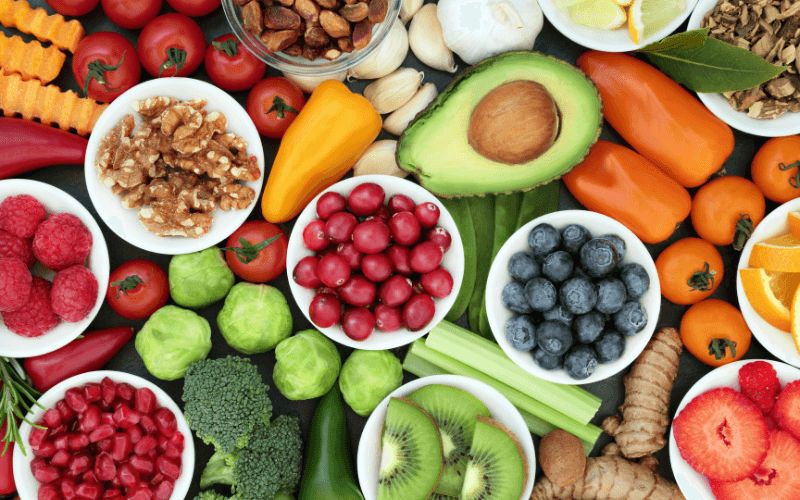Maintaining a healthy stomach is essential for overall well-being, especially for those prone to digestive discomfort or stomach pain. Choosing the right foods and adopting supportive habits can help soothe your stomach, reduce inflammation, and prevent painful flare-ups. In this article, we will explore what foods benefit stomach health, which to avoid, and practical tips to keep your digestive system running smoothly.
Foods That Are Good for Your Stomach
A diet rich in gentle, nourishing foods can strengthen your stomach lining and support digestion. Some of the best foods for stomach health include:
- Bananas: Easily digestible and help neutralize stomach acid while providing important vitamins and minerals.
- Oatmeal: A good source of soluble fiber that aids digestion and soothes the stomach.
- Yogurt with probiotics: Contains beneficial bacteria that promote gut health and balance.
- Cooked vegetables: Gentle on the stomach and rich in nutrients; examples include carrots, spinach, and zucchini.
- Lean proteins: Chicken, turkey, and fish are easier to digest compared to fatty meats.
- Ginger and chamomile tea: Natural remedies known to reduce nausea and soothe inflammation.
Eating smaller, more frequent meals instead of large heavy ones can also ease digestion and prevent excessive acid buildup.

Foods That Promote Stomach Health
A diet focused on gentle, nourishing foods supports digestion and protects the stomach lining. Some of the most beneficial foods for maintaining stomach health include bananas, which are easily digestible and help neutralize excess stomach acid, and oatmeal, rich in soluble fiber that soothes the digestive tract. Probiotic-rich yogurt encourages a balanced gut microbiome, enhancing digestion and reducing inflammation. Cooked vegetables such as carrots, spinach, and zucchini provide essential nutrients while being easy on the stomach. Lean proteins like chicken, turkey, and fish are preferable over fatty meats because they digest more easily and reduce digestive strain. Herbal teas such as ginger and chamomile are natural remedies known for their anti-inflammatory and nausea-relieving properties.
Eating smaller, more frequent meals rather than heavy, large ones can prevent overproduction of stomach acid and ease the digestive process.
Foods and Habits to Avoid to Prevent Stomach Pain
Certain foods and behaviors can aggravate the stomach lining or increase acid production, leading to irritation and pain. To reduce the risk of stomach discomfort, it is best to avoid or limit:
- Spicy and fried foods, which can exacerbate inflammation and acid reflux.
- Caffeinated beverages and alcohol, as both may irritate the stomach lining.
- Acidic foods such as citrus fruits and tomatoes, which can worsen acid sensitivity in some people.
- Carbonated drinks that cause bloating and increase stomach pressure.
- High-fat and heavily processed foods that slow digestion and increase discomfort.
- Frequent use of NSAIDs (non-steroidal anti-inflammatory drugs) like ibuprofen, which can damage the stomach lining over time.
Lifestyle Tips to Support a Healthy Stomach
Beyond diet, lifestyle plays a significant role in stomach health. Eating slowly and thoroughly chewing food help initiate digestion and reduce the burden on the stomach. Staying well hydrated with plain water supports smooth digestion and prevents constipation. Avoid lying down immediately after eating to reduce acid reflux risk. Stress management techniques, including meditation, deep breathing, or light exercise, can lower stomach acid production and promote healing. Maintaining a healthy weight helps decrease abdominal pressure that can worsen reflux and discomfort.

Important Medical Considerations and Warnings
While dietary and lifestyle changes can greatly improve stomach comfort, they are not substitutes for professional medical evaluation and treatment. Recurring or severe stomach pain may indicate underlying conditions such as gastritis, peptic ulcers, Helicobacter pylori infection, or gastroesophageal reflux disease (GERD). Mismanaging these conditions without medical guidance can lead to complications.
Individual tolerance to foods such as probiotics, caffeine, or spicy dishes varies widely. It is important to monitor symptoms carefully and consult a healthcare provider if symptoms persist or worsen.
Additionally, avoid the excessive or unsupervised use of NSAIDs, as these medications can erode the protective stomach lining and lead to ulcers or bleeding.
Seek immediate medical care if you experience any of the following serious symptoms: vomiting blood, black or tarry stools, unexplained weight loss, difficulty swallowing, or intense, persistent abdominal pain.
Conclusion
Adopting a stomach-friendly diet rich in gentle, nutrient-dense foods while avoiding irritants is a fundamental step toward reducing stomach pain and promoting digestive health. Coupled with mindful eating habits and stress management, these strategies provide a natural way to protect your stomach lining and improve overall digestion. However, these approaches should complement professional medical advice rather than replace it. If you suffer from frequent or severe stomach discomfort, consulting a healthcare professional is essential to ensure proper diagnosis and effective treatment.
For those seeking a natural way to support digestive health and maintain a balanced gut, the Integrative Digestive Formula offers a carefully crafted blend of ingredients designed to promote healthy digestion and soothe the stomach. This supplement combines essential enzymes, probiotics, and herbal extracts to help enhance nutrient absorption, reduce occasional digestive discomfort, and support overall gastrointestinal function. Incorporating the Integrative Digestive Formula into your daily routine can be a beneficial step towards achieving lasting digestive wellness. Always consult with a healthcare professional before starting any new supplement regimen.
